Humans
-
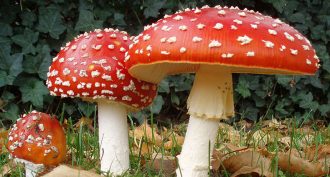 Environment
EnvironmentScientists Say: Poisonous
A poison-arrow frog is poisonous, but a rattlesnake is not. What’s the difference? It’s how the poison is delivered.
-
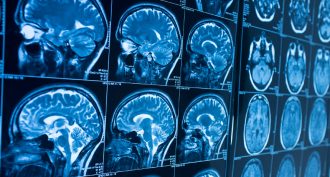 Brain
BrainHormone affects how teens’ brains control emotions
Using scans of brain activity, scientists show that surging hormones drive where emotions get processed in a teen’s brain.
-
 Science & Society
Science & SocietyStrict gun laws ended mass shootings in Australia
Australia enacted tough gun laws in 1996, which cut gun exposure — especially to semiautomatic weapons. Since then, new data show, that nation has experienced zero mass shootings.
By Meghan Rosen -
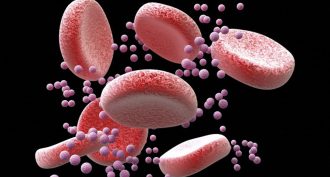 Health & Medicine
Health & MedicineZika vaccines look promising
As a Zika epidemic surges through Brazil and northward, scientists are looking for drugs to keep more people from becoming infected. Several vaccines show promise in early tests — but none has yet been tried in people.
By Meghan Rosen -
 Animals
AnimalsThis mammal has the world’s slowest metabolism
A sloth species manages to exist with a super-slow metabolism by moving little and using its environment for heating and cooling its body.
-
 Humans
HumansCave holds earliest signs of fire-making in Europe
Ancient burned bone and heated stones in a Spanish cave are the oldest evidence of ancient fire-making in Europe.
By Bruce Bower -
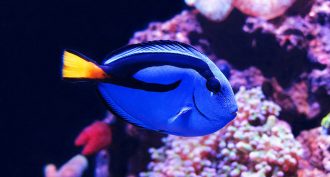 Animals
AnimalsCatching ‘Dory’ fish can poison entire coral reef ecosystems
More than half of saltwater-aquarium fish sold in the United States may have been caught in the wild using cyanide, new data show.
-
 Health & Medicine
Health & MedicineAdult diseases may be linked to childhood weight
Danish scientists find that very overweight kids grow up with a heightened risk of colon cancer and stroke.
By Dinsa Sachan -
 Brain
BrainTeen drinking may damage ability to cope with stress
Teens are often tempted to drink alcohol. Drinking too much — and repeatedly — can hurt their ability to manage stress, a study in rats indicates.
-
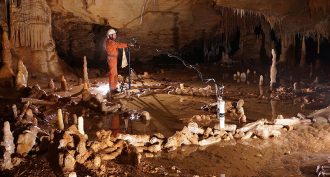 Archaeology
ArchaeologyNeandertals: Ancient Stone Age builders had tech skills
Neandertals built stalagmite circles in a French cave 176,500 years ago. These structures show that these ancient human cousins had social and technical skills.
By Bruce Bower -
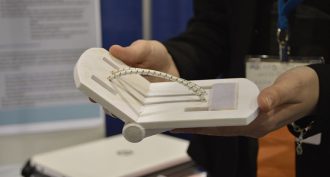 Tech
TechHelping MS patients get a grip on things
An Irish teen has invented a device that helps people with multiple sclerosis address the “clenched fist” symptom that afflicts most such patients.
By Sid Perkins -
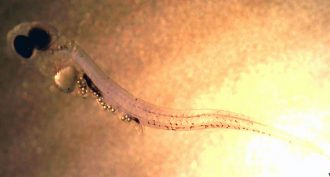 Environment
EnvironmentUh oh! Baby fish prefer plastic to real food
Given a choice, baby fish will eat plastic microbeads instead of real food. That plastic stunts their growth and makes them easier prey for predators.